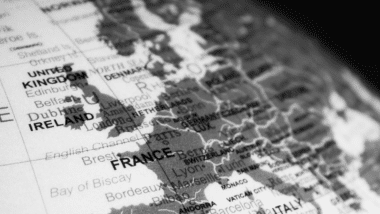Some UK policymakers have a very poor understanding of religious freedom, an expert has said.
Dr James Holt is Chair of the Freedom Declared Foundation and an Associate Professor of Religious Education at the University of Chester. He said that the general impression given at the Government’s recent International Conference on Freedom of Religion and Belief in London was that this is a foreign policy issue, not a domestic concern.
Writing in The Herald, he noted that – while the UK must “agitate for change and for rights to be respected by people around the world” – if the country wishes to be effective at promoting freedom abroad, “we must first of all get our own house in order”.
Lack of literacy
Dr Holt acknowledged that, although the Equality Act 2010 lists religious belief as a protected characteristic, “there are elements of legislation, and the implementation of laws, that would suggest that we have a way to go as a country”.
Highlighting the recent legal case in which a judge ruled that the Scottish Government’s enforced closure of churches during the pandemic was unlawful, he said: “there is a lack of religious and belief literacy among some of our elected officials”.
In his ruling at the time, the judge, Lord Braid, stated: “It is not clear that the respondents (the Scottish Government) have fully appreciated the importance of article nine (Freedom of Religion or Belief) rights.there is a lack of religious and belief literacy among some of our elected officials
“They have admittedly paid lip service to article nine by referring to it, but there is no evidence that they have accorded it the importance which such a fundamental right deserves.”
‘Core identity’
Dr Holt also highlighted the rise of anti-religious hatred in the UK: “Much more needs to be done to challenge behaviour that creates an environment where people do not feel safe or protected because of their religion and belief.
“Whatever our beliefs, it is imperative that we stand against injustice anywhere, not just when we are affected.”there is a lack of religious and belief literacy among some of our elected officials
He continued: “Every level of government and society needs to reflect on its commitment to FoRB. In doing so, they need to listen to the voices of all people. For many people, religion and belief is a core aspect of their identity, not something that can be taken on and off.
“In the spirit of the ministerial event, the UK must take the lead in putting FoRB into action, not just in other countries, but most importantly at home. Only then can we be truly world leading in helping others meet their responsibilities.”
UK religious freedom constraints during COVID outbreak ‘among worst in Europe’
Report: ‘Govt needs to better support persecuted Christians’
UK Special Envoy: ‘Freedom of religion is a foundation of a democratic society’


